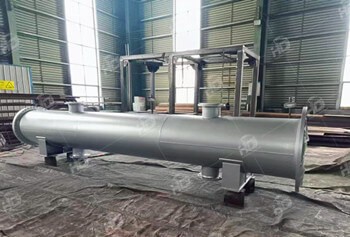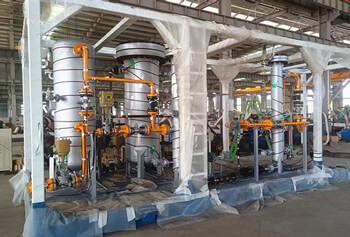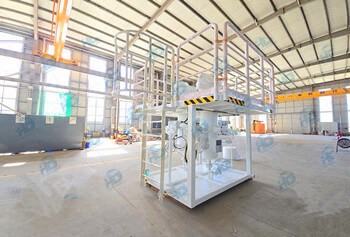In the natural gas industry, ensuring the purity and quality of the gas is crucial for efficient processing and safe operation. Two common pieces of equipment used for gas filtration are dry gas filters and filter separators. Both serve the essential purpose of purifying natural gas, but they operate on different principles and are suited for different applications.
Dry gas filters are primarily designed to remove solid particles such as dust, rust, and welding slag from the gas stream. They are typically used in applications where high-efficiency particle filtration is required. On the other hand, filter separators are multifunctional units capable of removing both solid and liquid contaminants from natural gas. These devices provide a more comprehensive solution for gas purification, making them suitable for a wider range of applications.
The design and operation of dry gas filters focus on solid particle removal. These filters utilize multiple stages of filtration media, such as filter cartridges or bags, to capture and eliminate very fine particles from the gas stream. The primary goal of a dry gas filter is to achieve high levels of gas purity by effectively removing all solid contaminants. The design is relatively straightforward, concentrating solely on the filtration of particulates, which makes them highly efficient for this specific purpose. Dry gas filters are often employed in the initial stages of natural gas processing and transportation systems, where the removal of solid particles is critical to protect downstream equipment such as compressors and metering devices.
In contrast, filter separators offer a more complex and versatile approach to gas filtration. These devices typically consist of two main sections: a pre-separation section and a fine filtration section. In the pre-separation section, large particles and liquid droplets are removed from the gas stream through gravitational or centrifugal forces. This initial step significantly reduces the burden on the fine filtration section, where filter cartridges are used to remove the remaining fine particles and liquid contaminants. The dual-functionality of filter separators allows them to address both solid and liquid impurities, making them an ideal choice for applications where comprehensive gas purification is required. Filter separators are widely used across various stages of natural gas processing, transportation, storage, and utilization, especially where high levels of gas purity are essential for the protection of precision equipment like compressors and burners.
When deciding between dry gas filters and filter separators, it is important to consider the specific requirements of your application. If your primary concern is the removal of solid particles, particularly in the early stages of gas processing, dry gas filters are likely the most efficient and cost-effective option. They provide high-efficiency particle filtration and are well-suited for applications where liquid contaminants are not a significant concern.
However, if your application involves the need to remove both solid and liquid impurities, filter separators offer a more comprehensive solution. Their ability to handle a broader range of contaminants makes them suitable for use in various stages of gas processing and transportation, where maintaining high levels of gas purity is crucial for the protection and efficiency of downstream equipment. While filter separators may involve a higher initial investment, their multifunctional capabilities can result in long-term cost savings by reducing maintenance and extending the lifespan of other equipment in the system.
In conclusion, both dry gas filters and filter separators play crucial roles in the natural gas industry, each catering to different filtration needs. By understanding the specific functionalities and applications of these two types of equipment, users can make informed decisions that align with their operational requirements, ensuring optimal performance and efficiency in their gas processing and transportation systems.
-
2025 / 12 / 29
 Customized Shell and Tube Heat Exchanger for Syria Project
Customized Shell and Tube Heat Exchanger for Syria Project -
2025 / 11 / 01
 HC Successfully Delivers Gas-Liquid-Sand Separator for Xinjiang Oilfield Project
HC Successfully Delivers Gas-Liquid-Sand Separator for Xinjiang Oilfield Project -
2025 / 08 / 20
 HC Successfully Delivered Filter Coalescer Skid to Malaysia
HC Successfully Delivered Filter Coalescer Skid to Malaysia
- +86 158 6190 3617










